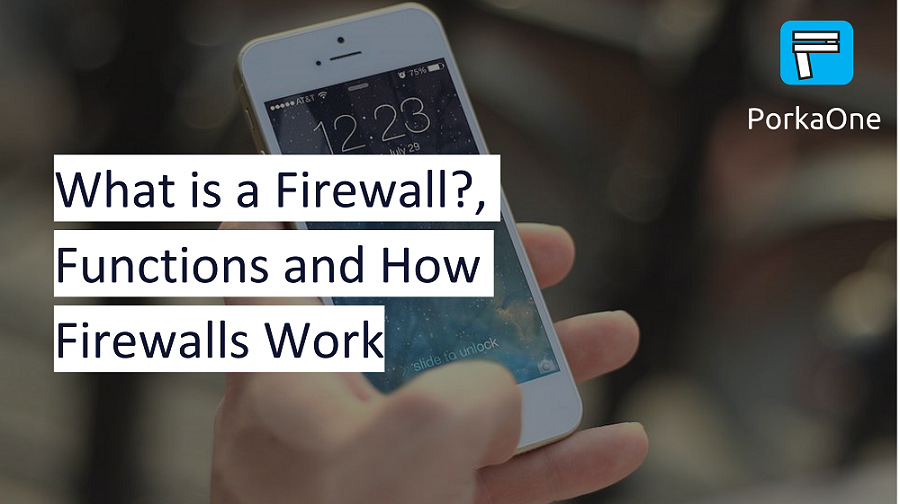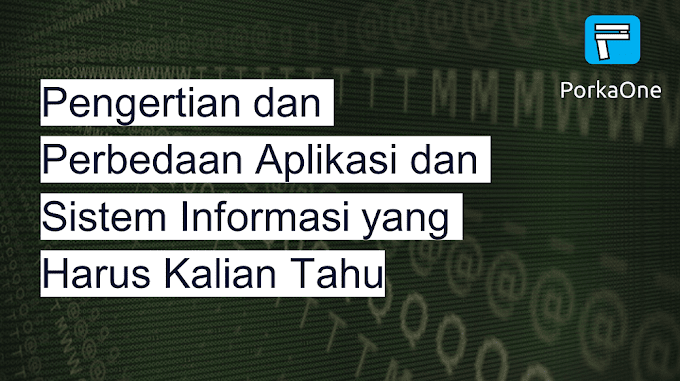
|
What is Firewall?
A firewall is a security system that protects your computer from various threats on the internet network. In other words, the Firewall function works as a partition or wall that limits computers from the internet network.
Through this "wall of fire" you can manage what data, information, and activities can pass from the internet network to the computer and vice versa.
Firewall Function
1. Protect Data from Hackers and Irresponsible Users
One of the functions of a firewall is to act as a barrier between internal data and external access. Because of the firewall, hackers and foreign users cannot access the data that you have. In other words, data will be prone to being stolen when the computer does not have a firewall installed.
2. Blocking Annoying Messages
You get a mysterious message saying your computer is in danger. If you do not immediately install certain programs, the computer will die in seconds. Does that kind of message feel familiar?.
If you ever get that message, it's likely that the firewall on your computer isn't properly installed. Because, one of the functions of a firewall is to block disturbing messages. That's why, regardless of the type of computer, don't skip installing and configuring the firewall, okay!
3. Blocking Unwanted Content
Apart from blocking spam messages and containing viruses, the function of a firewall is to block websites or content from specific addresses. You can manually set what kinds of content are not allowed to be accessed via a computer.
4. Making Online Games More Safe and Comfortable
Next, the function of the firewall is to ensure that the online gaming experience is more comfortable. The reason, online games have risks and security holes. This is due to the rapid exchange of data that occurs between networks. So hackers could just insert malware into your computer.
Although generally online game servers are equipped with advanced security features, it's a good idea to be careful with a firewall that is set up on your own computer.
5. Monitoring Bandwidth Usage
Firewalls are not only useful for ensuring computer network security is maintained. Besides the main firewall function, a firewall is a system that can be used to monitor and limit the bandwidth used. For example, you can set limits for entertainment content, pictures, and music. Then prioritize bandwidth for more important content for business.
6. Access VPN Service
Finally, the function of the firewall is to facilitate Virtual Private Network or VPN connections. Through this service, users can access your internal network.
With the same service, you can access content or websites that were previously blocked by certain parties. This of course can increase productivity, collaboration, and data sharing. After knowing some of the functions of a firewall, it will be more complete if you also know the various benefits of a firewall. Just go to the next point!.
How Firewalls Work
The way a firewall works is by filtering data (packets) between networks on the internet. It can allow or not allow a packet to be accessed by a computer. Well, there are one, two, or a combination of the following three firewalls to secure the network. See the following explanation for more details:
1.Packet Filtering (Stateless)
The first way the firewall works is to use certain rules to see whether or not data is allowed to enter the network. Each packet is checked individually or in isolation. If packets are sent in groups, then each packet will be checked individually.
When a packet is considered dangerous then it will not be allowed in. Conversely, when the packet is considered safe, it will be forwarded to the requesting system.
2. Proxy Services
Proxy service is an application that works as a liaison between network systems. In the workings of this one firewall, the proxy application is inside the firewall and is tasked with checking packets exchanged on the network.
This system can be said to be more effective. This is because all information is checked centrally. The workings of this kind of firewall can be said to be more sophisticated because the proxy service tries to create a similar relationship between networks.
The proxy seems to connect the network directly, even though it's only trying to copy a similar mechanism.
3. Stateful Inspection
The way this firewall works is to trace packets received with previous activities. The packets received are then checked in the packet database. If the packet has a positive connotation or does not indicate a risk of harm, then it will be forwarded to the requesting system.
so many articles this time about what is a firewall, functions and how firewalls work. Hopefully this article is useful. If anyone wants to ask, please leave a comment below. That is all and thank you.







0 Comments
Come on ask us and let's discuss together
Emoji